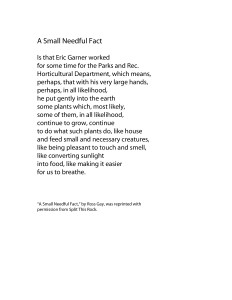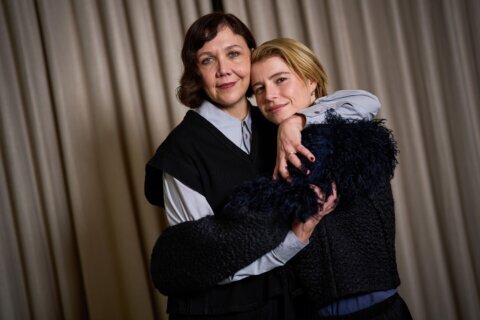WASHINGTON —When was the last time you let a piece of creative work move you?
That’s the question a poetry organization is working to answer on Friday, April 15, when it plans to “love bomb” a D.C. neighborhood. Participants will read poems of love and welcome to passers-by during their morning commute through Farragut.
Some may grumble at this, understandably, as they think about the interruption of their routines. But, says the organization’s co-founder, it might brighten your day.
“We are moved through our hearts first, and then through our heads,” said Sarah Browning, the co-founder and executive director of Split This Rock. “A poem, a song, a film or a story might move us first before a PowerPoint or lecture.”
The “love bomb” is just one event in this weekend’s celebration, open to poets, poetry lovers and anyone who wants to join in. The organization behind the festival, Split This Rock, is working to bring poetry back into social justice movements, among other things. For a smaller group, it has a far reach.
Beginning Wednesday, April 13, and ending on Sunday, April 17, D.C. will play host to the Split This Rock Poetry Festival. Every two years, poets from across the country will gather to read their works to eager crowds. It began in 2008, out of protests against the Iraq War, and has continued to inspire and elevate people ever since, says Browning.
“Poetry helps us remember our humanity,” she said. “It’s critically important in thinking about social issues. There are always human beings with real lives, real mothers, real hands, that are impacted by policies.”
Browning gives the example of Eric Garner, who died after he was put in a chokehold by police in New York City. What a lot of people don’t know, she says, is that he worked for the New York Parks and Recreation Horticultural Department.
Ross Gay, a poet featured at the Split This Rock festival, wrote a poem in reaction to that, called “A Small Needful Fact.”

Gay’s poem gets to the heart of what Split This Rock is about, says Browning.
“We wanted to help both bring poets into movements for social justice, but also to infuse those movements with the rich and imaginative language of poetry,” she said.
It’s not just for grown-ups, either.
“I’ve seen teenagers, PHDs, formerly incarcerated folks, all together in the same room, and when a feeling of trust gets established, you get remarkable writing from each of them,” Browning said.
“Poetry allows us to get access to our deepest selves, the selves that we censor and that others censor. That’s where the electricity is, when you get access to that.”
Browning says that even if you’ve never been to a poetry reading, or you don’t consider yourself an activist, there’s still an open seat for you this weekend.
“Poetry is a welcome, it’s a handshake. We find ourselves in others, we learn about others, and it helps us feel less alone. It speaks for another way of being in the world, one that notices the smallest details about our earth, and about each other,” she said.






